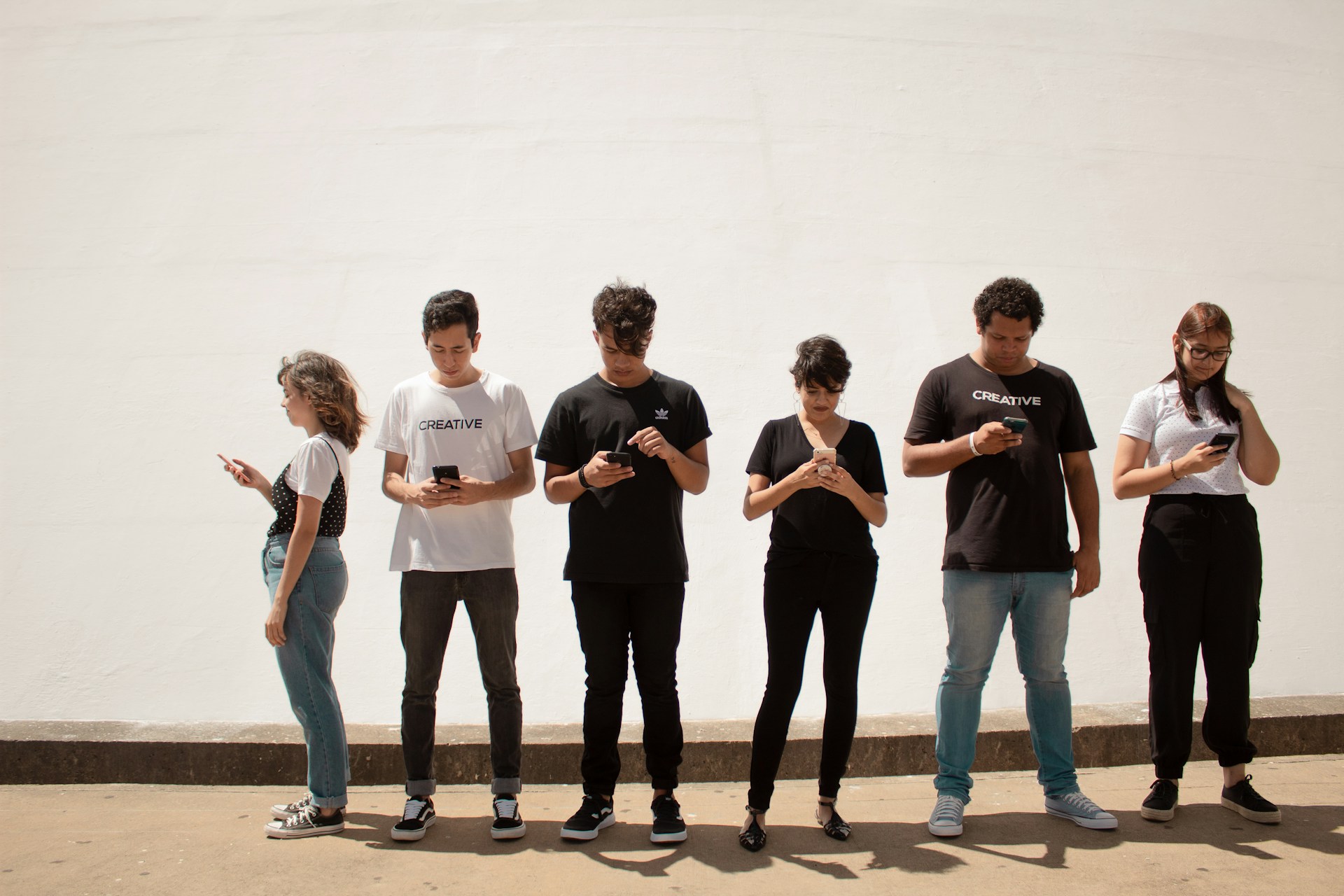Social media has fundamentally changed how we view ourselves and others. While these platforms offer incredible opportunities for connection and creativity, they’ve also created an environment where constant comparison has become second nature.
Research consistently shows that social media comparison is linked to decreased self-worth and compromised mental wellness.
Understanding why comparison feels so automatic—and learning practical strategies to combat it—can help you reclaim your sense of joy and build a healthier relationship with both technology and yourself.
The Psychology Behind Social Comparison
Social comparison theory, developed by psychologist Leon Festinger in 1954, explains our natural tendency to evaluate ourselves relative to others.
This behavior served an important evolutionary purpose, helping our ancestors assess their standing within social groups for survival.
However, social media has amplified this instinct beyond recognition. We’re no longer comparing ourselves to a small circle of peers—we’re measuring our lives against carefully curated highlight reels from millions of strangers worldwide.
Why Our Brains Fall for the Comparison Trap
The human brain isn’t equipped to distinguish between genuine social interactions and the manufactured perfection displayed on social platforms.
When we scroll through posts showcasing exotic vacations, career achievements, or picture-perfect relationships, our minds process these images as real-time comparisons with our own experiences.
This triggers what psychologists call “compare and despair”—a cycle where we automatically assume others are happier, more successful, or more fulfilled than we are.
The problem intensifies because we’re comparing our behind-the-scenes reality to someone else’s carefully edited performance.
How Social Media Comparison Damages Self-Worth
Regular exposure to comparison-inducing content creates measurable changes in how we perceive ourselves.
Studies have found that people who spend more time on social media platforms report lower levels of life satisfaction and increased feelings of inadequacy.
The Highlight Reel Effect
Every post we see represents a deliberate choice about what to share. People naturally showcase their best moments, achievements, and experiences while filtering out struggles, failures, and mundane daily realities.
This creates a distorted perception of others’ lives that makes our own experiences seem lacking by comparison.
Validation Seeking Behavior
Social media platforms are designed to trigger dopamine responses through likes, comments, and shares. This creates a feedback loop where our self-worth becomes tied to external validation rather than internal satisfaction.
When our posts don’t receive the engagement we expect, it can feel like a personal rejection.
The Numbers Game
Follower counts, likes, and engagement metrics become proxy measures for success and popularity.
This quantification of social relationships reduces complex human interactions to simple numbers, making it easy to feel inadequate when others appear to have “better” metrics.
The Mental Wellness Connection
The relationship between social media comparison and mental wellness extends far beyond momentary feelings of envy or inadequacy. Chronic comparison can contribute to more serious mental health challenges.
Impact on Anxiety and Depression
Research published in the Journal of Social and Clinical Psychology found that limiting social media use to 30 minutes per day led to reduced loneliness and depression in just one week.
The constant comparison cycle creates persistent anxiety about not measuring up and can contribute to depressive thoughts about personal inadequacy.
Sleep and Focus Disruption
The emotional turbulence created by comparison often extends beyond screen time.
Many people report lying awake thinking about posts they’ve seen or feeling distracted during daily activities by concerns about their social media presence.
Relationship Strain
When comparison becomes habitual, it can damage real-world relationships. People may become resentful of friends’ successes or feel pressure to present an artificially perfect version of their own lives, creating distance in genuine connections.
Strategies to Break the Comparison Cycle
Breaking free from comparison patterns requires intentional effort and practical strategies. The goal isn’t to eliminate social media but to use it in ways that support rather than undermine your mental wellness.
Curate Your Feed Mindfully
Take control of what you see by unfollowing accounts that consistently trigger comparison or negative feelings. Seek out content creators who share authentic experiences, including challenges and failures alongside successes.
Follow accounts focused on topics you’re genuinely interested in rather than lifestyle content designed to showcase perfection. This shifts your focus from comparison to learning and enjoyment.
Practice Reality Checking
When you notice comparison thoughts arising, pause and remind yourself that you’re seeing a curated snapshot, not a complete picture.
Ask yourself: “What am I not seeing in this post?” and “How does this compare to my real life, not my highlight reel?”
Implement Digital Boundaries
Set specific times for social media use rather than scrolling throughout the day. Consider using app timers or scheduling regular “social media breaks” to reset your perspective and reconnect with offline experiences.
Create phone-free zones in your home or establish rules about device use during meals, before bed, or first thing in the morning.
Focus on Your Own Growth
Redirect comparison energy toward personal development. Instead of measuring yourself against others, track your progress over time.
Keep a journal of personal achievements, growth moments, and things you’re grateful for. Set goals based on your values and interests rather than what appears successful on social media.
Building Authentic Self-Worth
True self-worth comes from internal validation rather than external metrics. Developing a strong sense of personal value that isn’t dependent on comparison takes time and practice.
Identify Your Core Values
Spend time reflecting on what truly matters to you beyond social media appearances. What brings you genuine satisfaction? What accomplishments feel meaningful regardless of whether others notice them?
Use these values as a filter for both the content you consume and create. Share posts that reflect your authentic interests and experiences rather than what you think will get the most engagement.
Celebrate Small Wins
Acknowledge your daily accomplishments, even if they seem insignificant compared to others’ major announcements.
Finishing a challenging work project, having a good conversation with a friend, or completing a workout all deserve recognition.
Practice Gratitude
Regular gratitude practice helps shift focus from what you lack to what you have. This doesn’t mean pretending challenges don’t exist, but rather developing appreciation for positive aspects of your life that might get overshadowed by comparison.
Creating Healthy Social Media Habits
Sustainable change happens through small, consistent adjustments rather than dramatic overhauls. Focus on building habits that support your mental wellness while still allowing you to enjoy the benefits of social connection.
Start by identifying one specific change you can make this week, such as checking social media only at designated times or unfollowing accounts that consistently trigger comparison. As this becomes natural, add additional strategies gradually.
Remember that everyone’s relationship with social media will look different. The goal is finding an approach that enhances rather than detracts from your overall well-being and sense of self-worth.
Your Path Forward
Breaking free from comparison patterns is an ongoing process rather than a one-time achievement. Be patient with yourself as you develop new habits and perspectives.
The effort you invest in building a healthier relationship with social media will pay dividends in improved mental wellness and authentic self-confidence.
Start small, be consistent, and remember that your worth isn’t determined by how your life appears compared to others—it’s inherent in who you are as a unique individual with your own valuable experiences and contributions.



Leave a Comment